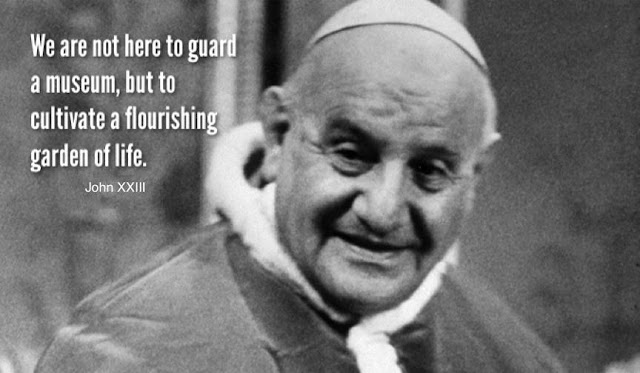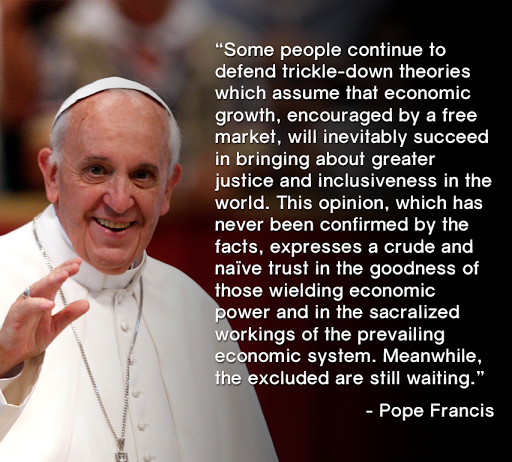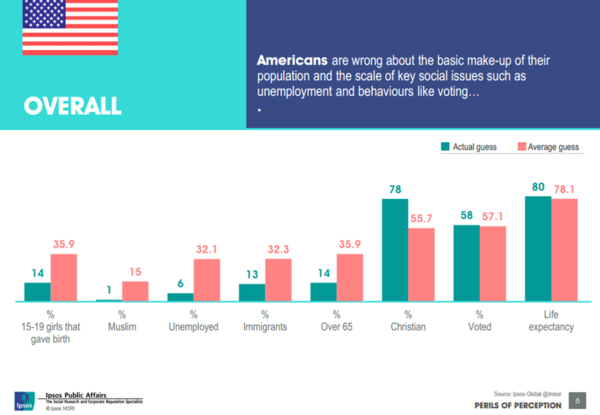1 OF 6. A fighter from the Shi'ite Badr Brigade militia wears a religious flag as he guards a checkpoint recently taken from militants of the Islamic State outside the town of Amerli, in this September 5, 2014 file photo.
(Reuters) - Among the thousands of militia fighters who flocked to northern
Iraq to battle militant group Islamic State over the summer was Qais al-Khazali.
Like the fighters, Khazali wore green camouflage. But he also sported a shoulder-strapped pistol and sunglasses and was flanked by armed bodyguards. When he was not on the battlefield, the 40-year-old Iraqi donned the robes and white turban of a cleric.
Khazali is the head of a militia called Asaib Ahl al-Haq that is backed by
Iran. Thanks to his position he is one of the most feared and respected militia leaders in
Iraq, and one of Iran's most important representatives in the country.
His militia is one of three small Iraqi Shi'ite armies, all backed by
Iran, which together have become the most powerful military force in Iraq since the collapse of the national army in June.
Alongside Asaib Ahl al-Haq, there are the Badr Brigades, formed in the 1980s during the Iran-Iraq War, and the younger and more secretive Kataib Hezbollah. The three militias have been instrumental in battling Islamic State (IS), the extremist movement from Islam's rival Sunni sect.
The militias, and the men who run them, are key to Iran's power and influence inside neighboring Iraq.
That influence is rooted in the two countries' shared religious beliefs. Iran's population is overwhelmingly Shi'ite, as are the majority of Iraqis. Tehran has built up its influence in the past decade by giving political backing to the Iraqi government, and weapons and advisers to the militias and the remnants of the Iraqi military, say current and former Iraqi officials.
That was clear this summer, when fighters from all three militias took on IS. During IS's siege of one town, Amerli, Kataib Hezbollah helicoptered in 50 of its best fighters, according to Abu Abdullah, a local Kataib Hezbollah commander. The fighters set up an operations room to coordinate with the Iraqi army, the other militia groups, and advisers from the Quds Force, the branch of Iran's Islamic Revolutionary Guard Corps that handles operations outside Iran and oversees Tehran's Iraqi militias. Over days of fierce fighting in August, and with the help of U.S. bombing raids – a rare example of Iran and the United States fighting a common enemy – those forces successfully expelled IS.
Tehran's high profile contrasts sharply with Washington's. Both Iran and the United States are preparing for a long battle against IS. But Iraqi officials say the two take very different views of Iraq.
"The American approach is to leave Iraq to the Iraqis," said Sami al-Askari, a former member of Iraq's parliament and one-time senior adviser to former prime minister Nuri al-Maliki. "The Iranians don't say leave Iraq to the Iraqis. They say leave Iraq to us."
The danger, Iraqi officials say, is that Iran's deep influence will perpetuate sectarian conflict in Iraq. Many Iraqi Sunnis complain that Maliki, who was Iraq's leader until he was forced out in August, was beholden to Tehran and prevented Sunnis from getting greater political power. Maliki has denied sidelining Sunnis.
Former Prime Minister Ayad Allawi, a secular Shi'ite who left office in 2005, told Reuters that "Iran is interfering in Iraq. Foreign forces are not welcome here. And militias controlled by foreign powers are not welcome also."
Iraq's Shi'ite militias have certainly fueled sectarian violence. In the past few months they have taken revenge on Sunnis thought to be sympathetic to IS, burned homes and threatened to stop Sunnis returning to their towns. Shi'ite fighters have kidnapped or killed civilians, say Sunni family members.
"The militias are a problem," said Askari, the former Maliki adviser. "What do you say after Islamic State ends? Thank you very much and go home?"
ECHOES OF LEBANON
The main body funding, arming, and training the Shi'ite militias is Iran's Quds Force. The model it uses is Hezbollah in Lebanon. Created by Tehran in the early 1980s, and operating as both a military outfit and political party, Hezbollah has grown to become the most powerful force in Lebanon.
Like Hezbollah, Iran's three big Iraqi militias have political wings and charismatic leaders.
Coordinating the three is Quds Force commander Qassem Soleimani, who, at least until the IS victories in Iraq this summer, had gained a reputation as one of the region's most effective military leaders.
After the collapse of the Iraqi military in June, Soleimani visited Iraq several times to help organize a counter-offensive. He brought weapons, electronic interception devices and drones, according to a senior Iraqi politician.
"Soleimani is an operational leader. He's not a man working in an office. He goes to the front to inspect the troops and see the fighting," said one current senior Iraqi official. "His chain of command is only the Supreme Leader. He needs money, gets money. Needs munitions, gets munitions. Needs materiel, gets materiel."
The Supreme Leader, Ayatollah Ali Khamenei, is the most senior religious authority in Iran and wields huge constitutional power.
Soleimani, who Reuters was unable to reach, knows the heads of the three big Iraqi militias personally, Iraqi officials say. A picture posted on a
Facebook page in August shows him in an olive shirt and khaki pants next to Khazali, who is in clerical robes. A picture on Facebook and Twitter late last month showed Soleimani and the leader of the Badr Brigades grinning and wrapped in a tight hug after what was reportedly a victory against IS.
In an interview with Iranian state television in September, a senior Revolutionary Guard commander, General Amir Ali Hajizadeh, said that Soleimani, with a force of only 70 men, had prevented IS from overrunning Arbil. "If Iran hadn't helped, Daesh would have taken over Kurdistan," he said, using a common Arabic name for IS.
The way Iran and Soleimani work is "completely the opposite of Saudi intelligence that just gives money but are not on the ground," said the current senior Iraqi official. "Soleimani sees a target and he has the powers to go after it."
THE BADR BRIGADES
Iran's oldest proxy in Iraq is the Badr Brigades, which is headed by Hadi al-Amri, a veteran of both combat and politics. The group renamed itself the Badr Organisation once it entered politics.
Amri fought alongside Iran's Revolutionary Guard against Saddam's army during the Iran-Iraq war in the 1980s. After the U.S. invasion of Iraq in 2003, he won a seat in parliament and served as Minister of Transportation during Maliki's second term.
Amri, who could not be reached for comment, is feared and loathed by many Sunnis for his alleged role in running death squads in recent years. In July, Human Rights Watch accused Badr forces of killing Sunni prisoners.
In recent battles with IS, Amri replaced his suit with a military uniform and transformed into a battlefield commander overnight, giving television interviews from the frontlines.
"Look at Amri's uniform and then compare it to any Iraqi uniform ... It's completely different," said a senior former security official. "Look for the uniform of the IRGC"– Iran's Islamic Revolutionary Guard Corps - "it's exactly one of them."
KATAIB HEZBOLLAH
The head of Iran's second proxy, Kataib Hezbollah, goes by the nom de guerre Abu Mahdi al-Mohandes. Many Iraqi officials simply call him al-Mohandes, or "the Engineer."
Mohandes, who could not be reached for comment for this story, is Iran's most powerful military representative in Iraq, according to senior Iraqi officials. At 60, he has distinctive white hair and a white beard. He studied
engineering in Basra and joined Dawa, a political party banned by Saddam, according to a
Facebook page set up in his name.
He began working with Iran's Revolutionary Guard in Kuwait in 1983, organizing attacks against embassies of countries that supported Saddam in the war against Iran. He has repeatedly denied involvement in such attacks.
Following the first Gulf War, Mohandes lived in exile in Iran. After the United States invaded Iraq, he returned home and was elected to parliament. Even then, it was clear where his allegiances lay. On a 2006 trip to Tehran, when protocol dictated that the Iranian and Iraqi delegations sit apart, "he sat with the Iranians," said Askari, the former Maliki adviser. "This was not normal."
Kataib Hezbollah is the most secretive of Iraq's militias, and the only one the U.S. Treasury labels a terrorist organization. In 2009 the Treasury sanctioned Mohandes for his alleged role in committing and facilitating attacks against U.S. and Iraqi forces. Mohandes has denied those charges, though his group's website features several video clips showing improvised explosive devices blowing up American Humvees.
He has a house in Baghdad's Green Zone close to Maliki, Iraqi officials say. In recent years, he occasionally delivered messages between Maliki and Iranian officials. He frequently visits Iran, where his family lives, according to a former senior Iraqi official.
When Ayatollah Ali Sistani, Iraq's most powerful cleric, called on Shi'ites to rise up and fight IS earlier this year, Mohandes took charge of the tens of thousands of new volunteers. "He's involved in everything: administration, funding, logistics and planning," said a senior Iraqi security official.
ASAIB AHL AL-HAQ
The third big Iraqi militia, Asaib Ahl al-Haq, started as a splinter group of the Mahdi Army, a paramilitary force formed by anti-American Shi'ite leader Moqtada al-Sadr during the U.S. occupation.
Under leader Khazali, Asaib gained notoriety for kidnapping and killing Sunni civilians and carrying out attacks against U.S. forces.
In 2007 he was arrested by U.S. military forces for his alleged role in an attack on an Iraqi government compound in Karbala, which left five American soldiers dead. Khazali managed to use a kidnapped British consultant as a bargaining chip to win his own release. (British and U.S. military denied striking such a deal.)
Askari, the former Maliki adviser, played a key role in negotiations. When a senior British commander was skeptical that Khazali could wield power from Camp Cropper, the high security facility where he was imprisoned, Khazali asked for a phone. "They brought him a phone and he made a call," said Askari. "Within two weeks the attacks stopped."
Asaib has grown stronger in recent years. Sunnis say Maliki allowed Shi'ite militias, particularly Asaib, to kidnap and kill ordinary Sunnis to solidify his grip on power. Some Sunnis began to see Asaib as Maliki's personal militia.
Khazali was not available to be interviewed. At Asaib's offices in an upscale Baghdad neighborhood, the group's spokesman, Naim al Aboudi, denied that Asaib is closely linked with Maliki or that the group targeted Sunni civilians. "We are ... working toward building a more stable country," he said.
Fighters from all three militias have sharpened their combat skills in
Syria in recent years. In late 2011, as the Syrian conflict grew, Iran stepped in to defend Syrian President Bashar al-Assad. Assad is a follower of the Alawite faith, an offshoot of Shi'ism.
Iraqi Shi'ite fighters also flocked to Syria. Billboards and posters in Baghdad praise Iraqi "martyrs" in the conflict.
Syria has also helped militia fighters hone their media skills. Internet videos set to a booming soundtrack of Shi'ite militant religious songs show fighters shooting rocket-propelled grenades, sniping from rooftops and firing heavy machine guns from pickup trucks.
Some Iraqi Shi'ite militia commanders concede that defending Assad has been unsavory. But they argue that fighting in Syria was necessary for broader regional reasons, namely the struggle that Iran and its allies are waging against
Israel.
"Bashar is a dictator," said Abu Hamza, a burly commander from Kataib Hezbollah who has fought in Syria. "But his presence there preserves the line of resistance."
BREAKING THE SIEGE
One of the biggest rallying points in recent months was Amerli, an Iraqi town of some 15,000 Shi'ites, which was besieged by IS for two months. Most residents there are Turkmen, not Arabs, but that did not change the symbolism of the conflict for Shi'ites. Graffiti sprayed outside the town in August read "Amerli is the Karbala of the age"– a reference to a seventh century battle that is a defining moment for Shi'ites.
Iran helped train Kataib fighters in the use of AK-47 assault rifles, heavy machine guns, mortars, rockets and IEDs, according to Abu Abdullah, the Kataib commander. Kataib fighters also used a camera-equipped drone to gather information on IS positions. A Reuters reporter met two men who spoke Farsi, the language of Iran, accompanying Asaib fighters during the battle. A third man said he had come from Iran to train police.
When the battle began in late August, Shi'ite militias teamed up with Kurdish fighters to attack IS positions, as American aircraft bombed around the town.
The importance of the battle for Iran was underscored when photographs and videos surfaced on the Internet that allegedly showed Revolutionary Guard commander Soleimani in the town.
In early September, a group of Shi'ite fighters and Kurdish peshmerga fought to protect a small village near Amerli called Yangije. Some 50 IS fighters had attacked the village in the early morning. After nearly eight hours of fighting, the Shi'ites and Kurds pushed the fighters out.
The next morning, Shi'ite and peshmerga fighters went house-to-house to check IS had cleared out. They came across an IS fighter hiding beneath a blanket. The man shot and killed one peshmerga and detonated a suicide belt, injuring several others.
Around midday, the burned and mangled body of the IS fighter was lying in the sun when a group of Shi'ite fighters approached. A Reuters team saw one Shi'ite fighter behead the corpse with a large knife while a handful of fighters filmed with their phones. The dead fighter's head was mounted on a knife, and one Shi'ite fighter shouted, "This is revenge for our martyrs!"
The Shi'ite fighters put the head in a sack and took it away with them.
(Additional reporting by Ned Parker, Isabel Coles and Ahmed Rasheed; Edited by Simon Robinson)





































9(MDAxODM1Njk5MDEyMTY5MDg4MzEyOTc5Ng004))

















